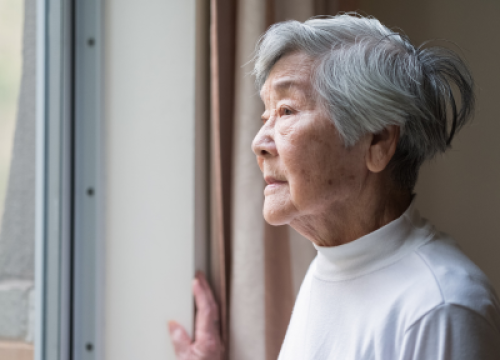Mental Health Tips for Cognition, Mood and Sleep

Just as physical health is affected by lifestyle and exercise, so is your mental health. Cognition, mood and sleep all play integral roles when it comes to maintaining proper mental health.
Most people living with Parkinson’s disease (PD) experience changes and symptoms that impact cognition, mood and sleep as time goes on. Some people even experience cognition, mood and sleep symptoms as early PD signs. Below we highlight tips for how to support your mental health with changes in your cognition, mood and sleep.
Cognition Tips
Cognition is the act of mental processing. While tremors are a recognizable PD symptom, Parkinson’s may also impact cognition. Cognitive changes can include shifts in your thinking and behavior, along with slowness in memory. This non-movement symptom can impact quality of life. It can be scary to experience cognitive changes, but there are ways to support your mental health:
- Create coping strategies like developing a routine and staying engaged with fun hobbies.
- Find a counselor to help you adjust to these changes. You can see a counselor individually or with your care partner.
- Exercise can help improve how we think and perform tasks. Try Fitness Fridays or finding a local workout classes.
- Communicate with loved ones about these changes. Your care partner and care team are there to help and support you.
- Take time to process and accept these changes. This time can look different for everyone.
→ Learn more about Cognition and Parkinson’s. Order Cognition: A Mind Guide to Parkinson’s Disease now!
Mood Tips
Everyone experiences mood changes; however, Parkinson’s can influence mood as a non-motor symptom. Mood changes may negatively affect your social life and emotional well-being. They may include depression, anxiety and other mood-related changes. Your mood may be affected by major life changes or medication. It is important to evaluate your mood and mental health. We have tips to help support you through these mood changes:
- Create an exercise plan to support your emotional and physical health.
- Connect with those around you to provide social support. Attend a support group and build your community — try attending a local PD event by using our In Your Area search tool.
- Talk to a mental health professional who can help you process mood changes.
- Focus on your nutrition. Eating healthy is important for helping manage Parkinson’s symptoms and optimizing PD medications.
- Talk to a doctor about a treatment plan, especially if your mood changes are associated with pain.
→ Learn more about mood and Parkinson’s. Order our free publication, Mood: A Mind Guide to Parkinson’s Disease now.
Sleep Tips
Sleep is a vital part of mental health; our bodies and minds need rest. Parkinson’s can often affect your ability to sleep and daytime alertness. Sleeping problems may be the result of sleeping disorders like insomnia and sleep apnea. Your mental health may be affected by unhealthy sleeping patterns. Here are five tips that can help with sleep and Parkinson’s:
- Set a schedule around sleep: avoid naps and try to set a consistent sleep pattern.
- Practice exercise to get your body moving and ready for rest.
- Avoid using electronic devices right before sleep.
- Set aside time to relax intentionally as you get ready for bed. Avoid doing things that cause stress.
- Discuss sleep issues with your doctor and healthcare team.
→ Learn more about sleep and Parkinson’s. Order our free publication, Sleep: A Mind Guide to Parkinson’s Disease now.
Although changes in your cognition, mood and sleep may feel overwhelming, you are not alone. It is very important to care for your mental health. The Parkinson’s Foundation has many resources to support you through these changes.
Related Blog Posts

Extreme Weather Emergency Preparedness

Caring for the Mind: 12 Parkinson’s Mental Wellness Resources
